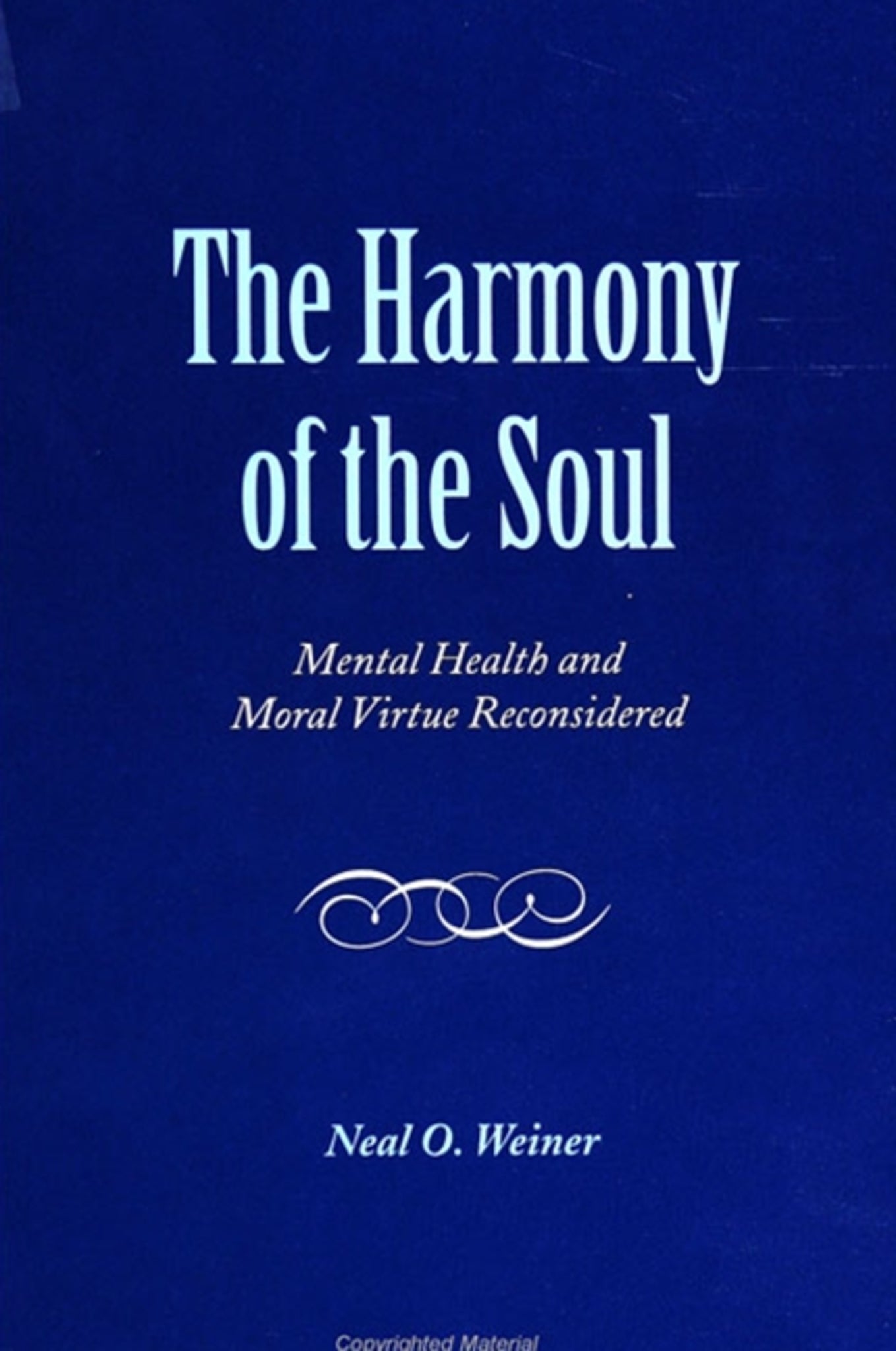We're sorry. An error has occurred
Please cancel or retry.
The Harmony of the Soul

Some error occured while loading the Quick View. Please close the Quick View and try reloading the page.
Couldn't load pickup availability
- Format:
-
09 December 1993

The Harmony of the Soul creates a naturalistic grounding for ethics and a moral grounding for psychotherapy. It is an original and startling synthesis of the ideas of mental health and moral virtue based on neglected affinities between classical Greek ethics, contemporary virtue ethics, sociobiology, and the basic presuppositions of psychotherapy. A central thesis of the book is that we can assume "the worst" about what science tells us about the human animal without having to sacrifice any of the things that are of most importance to ethics: virtue and the good life, harmony of the soul, freedom, conscience, and moral knowledge.


"Neal Weiner's Harmony of the Soul is a bold and original contribution to the literature on the philosophy of psychology. Its controversial and thought-provoking arguments are likely to force a re-examination of our views in many areas, from Greek philosophy through modern psychoanalysis." — Charles Griswold, Boston University
"A truly great work, and one that has had an incalculable impact upon me." — Henry B. Veatch
"Weiner explains the current convergence of ethical and mental health concepts as a rediscovery of the traditional idea of the unity of virtue and happiness, an idea distinctive of classical antiquity and best exemplified in the thought of Aristotle. The pattern of convergence he addresses is extremely important, and his explanations of this pattern are clear, persuasive, and original." — Michael Washburn, Indiana University at South Bend
Acknowledgments
Introduction
I. THE BODY
1. Health: A Tattered Absolute
II. THE SOUL
2. Behavior
The General Meaning of Mental Health
The Empirical Reality of Mental Health
A Limited Specification of Mental Health
Love and Work
Health Values and the Status Quo
3. Motivation
III. THE GOOD
Pleasure, Function, Behavior
The Disruption of the Harmony and the Transformation of Pleasures
The Origin of Mental Illness
The Intensity of Anxiety
The Modality of Anxiety
The Unconscious as Self-Deception
Neurotic Pleasure
4. The Paradox of Human Nature
The Duplicity of Human Nature
The Origin of Anxiety and Self-Negation
Health and Nature Reconsidered
5. Human Nature/Human Goodness
The Fixed Side of Human Nature
The Medical and the Moral
The Possibility of Happiness
6. Virtue and Morality
The Spontaneity of Goodness in Aristotle
Habit and Natural Pleasure
7. Consequences
Freedom
Conscience
The Problem of Ethical Knowledge
Notes
Bibliography
Index



